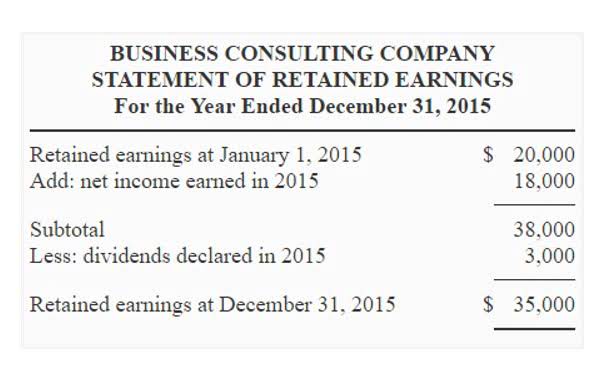
Keeping our financial records accurate QuickBooks is crucial for making smart decisions and staying on top of tax rules. Mark your calendar with important dates for estimated tax payments, annual filings, and payroll taxes. Using accounting solutions can help you keep track of these deadlines and avoid any last-minute stress. Although the cash method is not as accurate as the accrual method, it has the advantage of delaying taxes until you have the funds in hand. With the example above, the income from that project would be taxed in 2020 even though you won’t receive it until 2021 under the accrual method.
Track mileage with Shoeboxed 🚗

LLCs, like any other business, need an accounting foundation to continue running smoothly. FICA requires LLCs to pay self-employment taxes and contributions toward Bookkeeping for Painters Medicare and Social Security. The IRS provides more information on how long documentation is stored, but it’s best to immediately decide on whether the documents will be stored online in a cloud-based system or physically.
Maximize Financial Health with QuickBooks Payroll Experts
When we have clear and accurate financial records, we can make better decisions for our business. Whether it’s deciding to invest in new equipment or figuring out if we can afford to hire more staff, good bookkeeping gives us the info we need to make the right call. But with proper bookkeeping, we can stay on top of our tax obligations and avoid any nasty surprises. Keeping accurate records helps us stay compliant with the law and makes tax season a lot less stressful. LLC bookkeeping helps you understand your company’s financial health and ensures compliance with tax laws and regulations. By default, single-member LLCs are considered sole proprietorships, and taxes are filed on Schedule C with their personal tax returns.
Tracking and Managing LLC Earnings and Expenses
The IRS taxes all regular corporations (C corporation) at a flat 21% rate. Your LLC is a separate business entity, both legally and financially. Yes, you can transfer money to your company from your personal account. Yes, accounting software can simplify bookkeeping, enhance accuracy, and save time for LLC owners. Each state has unique tax requirements for LLCs, including franchise taxes, gross receipts taxes, and additional filing fees. Understanding these obligations is critical to avoiding penalties and ensuring compliance.
- Choosing the right classification can save you money and headaches down the road.
- An LLC is treated as a pass-through entity by default, which means profits and losses are reported on each member’s individual tax return.
- The LLC pays the 21% corporate tax, and each shareholder pays income tax on their dividends at capital gains rates, which can also be 20+%.
- For example, if you’re looking to start an LLC in Florida please make sure to familiarize yourself with the local laws.
- For these reasons, it is important to carefully consider all pros and cons before deciding to form a sole proprietorship.
Make sure to sign up for electronic notifications on your phone or desktop from your bank to help keep track of due dates on credit cards and other bills. You may also consider an online bookkeeping software application that keeps your data in the cloud and gives you the capability to record transactions in real time on your phone. Look for someone with experience in your industry and check their references. It’s also important to ensure they are familiar with the latest bookkeeping software and compliance requirements.

- However, it’s important to consider how your business structure protects you, how it affects your taxes, and how it compares to other business structures.
- The most fundamental elements of bookkeeping and accounting are tracking your company’s income and business expenses, as these tasks are performed daily.
- It involves withholding federal income tax, Social Security and Medicare taxes from employees’ wages and then remitting them to the IRS.
- When you’re running a business, it’s beneficial to at least have an estimate of how much you expect to pay in taxes.
- If you don’t have any experience, there is a lot to learn, but the good news is that it’s surprisingly easy to get started.
- Seeking professional guidance can help determine the best tax treatment for an LLC.
Payroll management varies depending on whether your LLC is a single-member (SMLLC) or multi-member (MMLLC) entity. In an SMLLC, the owner cannot receive a regular salary and must take profits as distributions, filing self-employment tax. Fortunately, you can handle basic bookkeeping yourself with a simple, effective system. Start by choosing a bookkeeping method and setting up a chart of accounts.
- With the cash method, the income would be taxed in 2021 when it actually hits your books.
- This blog post delves into the essential aspects of accounting specific to Limited Liability Companies (LLCs) including business accounts, financial reporting, and general ledger.
- Choosing to outsource bookkeeping or keep it in-house will depend on many factors.
- While this method may still suffice for very small businesses with few transactions, it’s time-consuming and prone to errors.
- This helps catch any discrepancies and ensures that your records are accurate.
- Mixing personal and business finances can lead to confusion, inaccurate records, and potential legal issues in case of an audit.
Keeping organized records of all financial transactions, invoices, receipts, and llc accounting bank statements is essential for tracking income and expenses. This documentation not only supports the accuracy of our financial statements but also simplifies the process of preparing tax returns and undergoing audits. Caryl Ramsey has years of experience assisting in different aspects of bookkeeping, taxes, and customer service.
Blurring the lines between personal and business funds can create accounting errors and compliance issues. It’s crucial to keep these finances separate to maintain the limited liability protection that an LLC offers. Failing to do so can pierce the corporate veil, potentially exposing your personal assets to business liabilities.

Decide whether you’ll use paper records or digital tools, then create a schedule for regular updates. Once you’ve set this foundation, maintaining your books becomes a matter of consistent habit. As an LLC owner, you’ll have to attach a Schedule C for reporting business income and a Schedule SE for paying self-employment tax. Each year, you need to file Form 1065 to report income, gains, losses, deductions, and credits. When you’re calculating your LLC taxes, don’t forget about tax credits and deductions.
